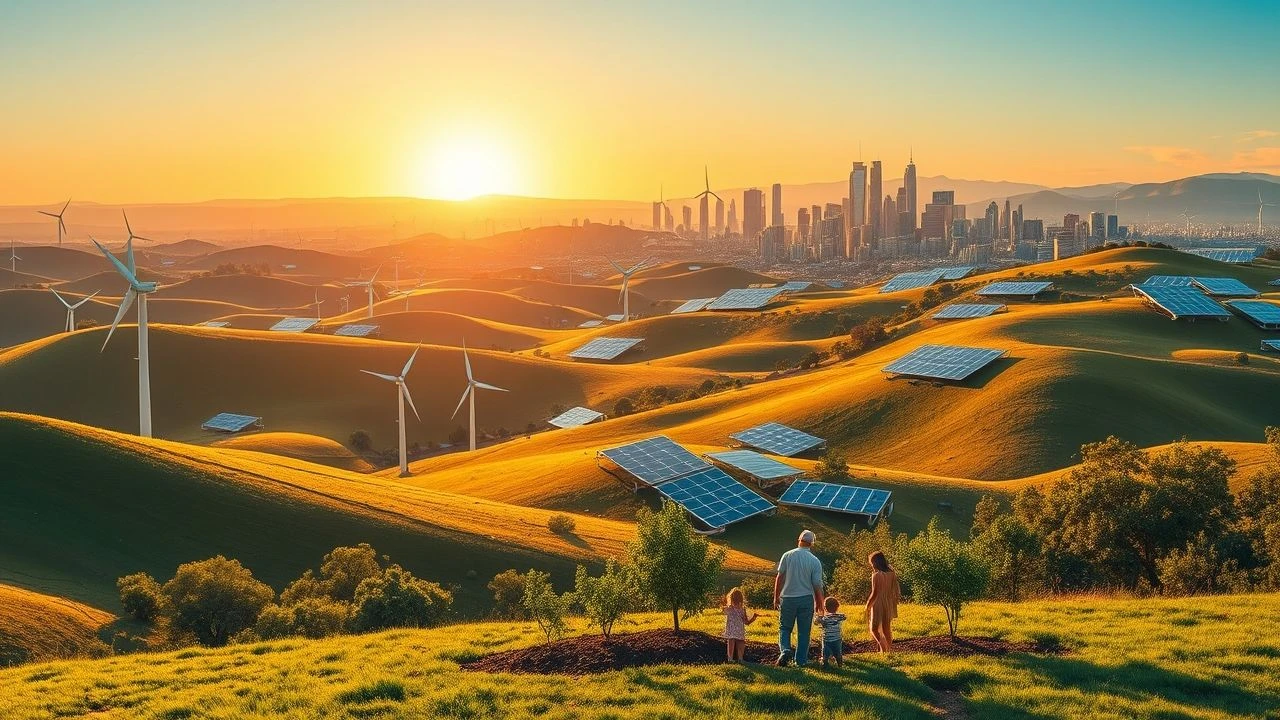
The United States is experiencing a significant surge in the adoption of renewable energy sources. We're seeing a real shift towards solar, wind, and hydroelectric power, driven by a confluence of factors including growing environmental awareness and, of course, economic incentives. The Energy Information Administration (EIA) forecasts a continuing upward trend in renewable energy generation, painting a picture of a much greener future for the American energy landscape. It's not just wishful thinking; it's backed by hard data.
The commitment to renewable energy is also evident in the hefty investments being made, both from the public and private sectors. We're talking about serious dosh being ploughed into renewable energy technologies. This financial backing is crucial for innovation and scaling up these technologies to meet the ever-increasing energy demands of the nation. Energy analysts reckon that the falling costs of renewable energy, particularly solar and wind, coupled with supportive government policies are key drivers of this exponential growth. In fact, one leading analyst noted, "Renewable energy is no longer just an environmentally sound choice; it's increasingly becoming the most economically viable option for new power generation."
As the U.S. continues its journey toward a sustainable future, expect to see renewable energy play an even bigger role in powering the nation.
A significant driver has been the Biden administration's policies, most notably the Inflation Reduction Act. This legislation has unlocked substantial funding for energy security initiatives and climate change mitigation efforts, catalysing investment in renewable energy projects across the nation. Academic research and industry reports consistently highlight the effectiveness of these policies in accelerating the adoption of renewable energy sources. The Act is really pushing things in the right direction, giving businesses and households a real incentive to go green.
As stated by a government official involved in the initiatives, "The Inflation Reduction Act is a game-changer for the U.S. renewable energy sector. It provides the long-term certainty needed to drive investment and innovation, ensuring a more sustainable and secure energy future for all Americans."
Furthermore, policy experts suggest these supportive policies are essential to create a level playing field, allowing renewables to compete effectively and contributing to a greener, more sustainable energy mix.
Key areas receiving investment include:
But it's not just the big boys getting involved. Community solar projects are popping up across the States, giving locals a chance to take ownership of their energy future and boost local energy resilience. These projects, often involving a collection of households or businesses, allow participants to benefit from solar energy even if they can't install panels on their own roofs. For instance, a community solar garden in Minnesota provides clean energy to over 100 subscribers, reducing their carbon footprint and saving them money on their electricity bills.
These initiatives are more than just feel-good stories; they’re driving tangible change. Corporate sustainability reports are brimming with data showing reduced carbon emissions and increased reliance on renewable sources. Community project assessments highlight the positive impact on local economies and the environment. It's a win-win, really. As Aldous Huxley said, "The future is not some place we are going to, but one we are creating."
And it looks like a good proportion of us are heading toward a greener future, powered by sustainable initiatives from all walks of life.

AI in Healthcare: Revolutionizing Patient Care and Navigating Ethical Dilemmas
Rising Mental Health Awareness Demands Stronger Support Systems and Accessible Resources
Revamping America's Roads: Ambitious Plans to Modernize U.S. Transportation Infrastructure Take Center Stage
Navigating the AI Revolution: Why Regulation is Now Essential
AI Ethics: Tech Leaders and Ethicists Clash Over Algorithmic Bias and the Future of Responsible AI Development
Cities Prioritize Public Transportation Improvements for Sustainable and Accessible Urban Living